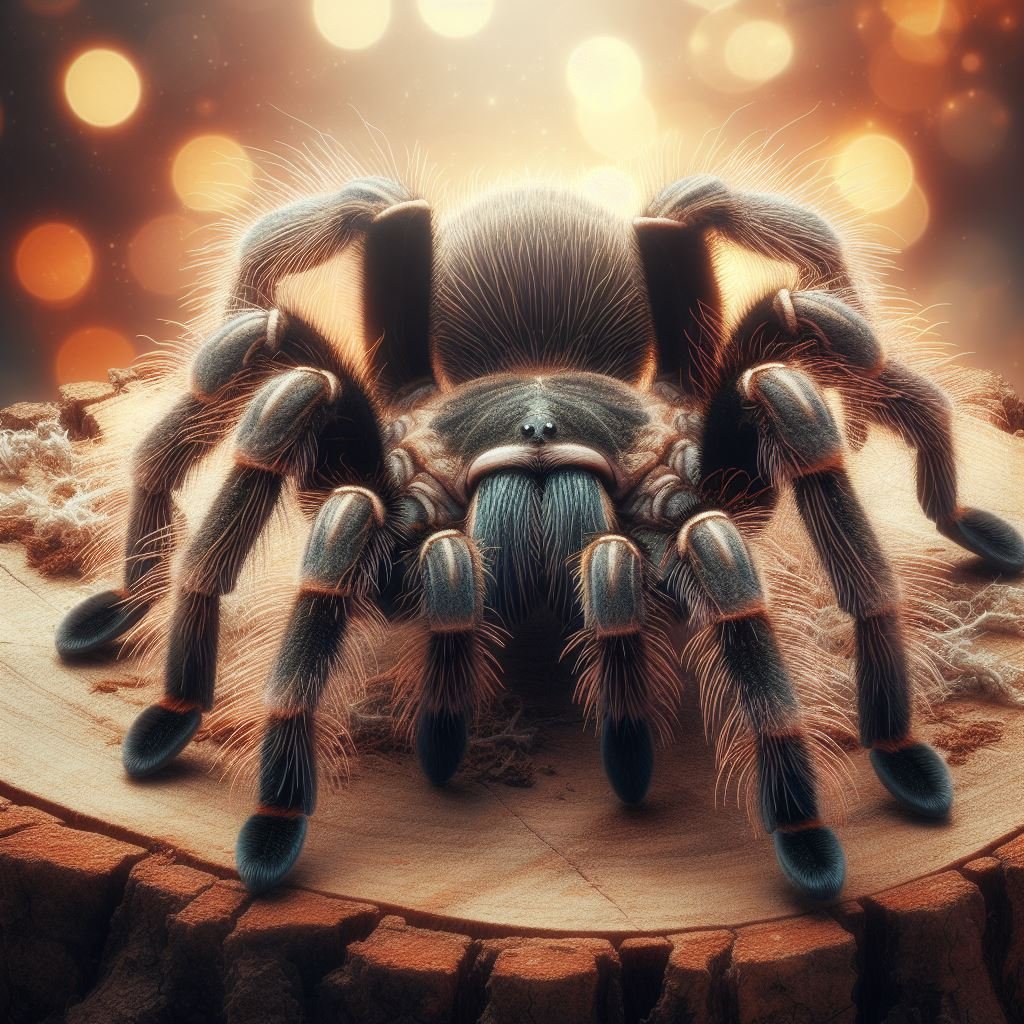Tarantulas are among the most misunderstood and feared creatures in the animal kingdom. Many people associate them with horror movies, venomous bites, and hairy legs. However, these arachnids are actually fascinating and gentle pets that can live for decades and have unique personalities. In this article, we will debunk some of the common myths and misconceptions about tarantulas and reveal the truth behind these amazing animals.
Myth #1: Tarantulas are deadly venomous

One of the most prevalent and persistent myths about tarantulas is that they are deadly venomous and can kill a human with a single bite. This is simply not true. While all tarantulas have venom glands and fangs, their venom is usually mild and comparable to a bee sting. In fact, most tarantulas are reluctant to bite and will only do so as a last resort when threatened. They will usually try to escape or use their urticating hairs (tiny barbed hairs on their abdomen) to deter predators. The only exception is the Sydney funnel-web spider (Atrax robustus), which is not a true tarantula but belongs to a different family of spiders. This spider has a potent venom that can cause severe symptoms and even death in humans. However, this spider is native to Australia and is not kept as a pet.
Myth #2: Tarantulas are aggressive and unpredictable

Another common myth about tarantulas is that they are aggressive and unpredictable, and will attack anything that moves. This is also false. Tarantulas are generally docile and calm, and will only show aggression when provoked or stressed. They have different personalities and temperaments, and some species are more defensive than others. For example, the Mexican red-knee tarantula (Brachypelma smithi) is one of the most popular and friendly tarantulas, while the cobalt blue tarantula (Haplopelma lividum) is one of the most aggressive and skittish. However, even the most aggressive tarantulas can be handled with care and caution, and will rarely bite unless they feel threatened. Tarantulas are also not unpredictable, and will usually give warning signs before they bite, such as raising their front legs, showing their fangs, or flicking their hairs.
Myth #3: Tarantulas are hairy and gross

Many people are repulsed by the sight of tarantulas because they think they are hairy and gross. However, this is a matter of personal preference and opinion, and not a fact. Tarantulas have different types of hairs on their body, and each one serves a different function. For example, the sensory hairs on their legs help them detect vibrations and movements, the urticating hairs on their abdomen help them defend themselves from predators, and the scopulae hairs on their feet help them cling to surfaces. Tarantulas also groom themselves regularly and keep their body clean. Some people find tarantulas to be beautiful and majestic, and admire their colors, patterns, and shapes. Tarantulas come in a variety of sizes, colors, and forms, and some of them are truly stunning. For example, the Gooty sapphire ornamental tarantula (Poecilotheria metallica) has a striking metallic blue color, while the Brazilian salmon pink bird-eating tarantula (Lasiodora parahybana) has a pinkish hue and can grow up to 10 inches in leg span.
Myth #4: Tarantulas are easy and cheap to keep

Some people think that tarantulas are easy and cheap to keep as pets, and do not require much care or attention. This is partly true, but not entirely. Tarantulas are relatively low-maintenance and inexpensive pets compared to other animals, but they still have specific needs and preferences that must be met. For example, tarantulas need a suitable enclosure that provides enough space, ventilation, substrate, hiding places, and water. They also need a proper diet that consists of live insects, such as crickets, roaches, or worms. They also need a stable temperature and humidity level that matches their natural habitat. Tarantulas also have different life cycles and behaviors, and some of them can be challenging to care for. For example, some tarantulas molt regularly and need a stress-free environment during this process, while others can fast for months and need to be monitored for signs of hunger. Tarantulas also have different levels of activity and sociability, and some of them are more active and curious than others. Tarantulas are not toys or decorations, but living creatures that deserve respect and care.
Myth #5: Tarantulas are boring and do not bond with their owners

The last myth that we will address is that tarantulas are boring and do not bond with their owners. This is also subjective and depends on the expectations and preferences of the owner. Tarantulas are not like dogs or cats, and do not show affection or loyalty to their owners. They also do not need or enjoy being handled or petted, and will usually tolerate it at best or resist it at worst. However, this does not mean that tarantulas are boring or do not have personalities. Tarantulas are fascinating and intriguing animals that can display different behaviors and traits, such as curiosity, intelligence, defensiveness, or shyness. Some owners enjoy observing and learning about their tarantulas, and appreciate their uniqueness and individuality. Some owners also claim that they can recognize their tarantulas and vice versa, and that they can form a bond based on mutual respect and understanding.
Conclusion
Tarantulas are amazing and misunderstood animals that have been unfairly maligned and feared by many people. They are not deadly venomous, aggressive, hairy, gross, easy, cheap, boring, or unresponsive, but rather complex and diverse creatures that have their own needs, preferences, and personalities. Tarantulas can be rewarding and enjoyable pets for those who are willing to learn about them and provide them with proper care and respect. If you are interested in keeping a tarantula as a pet, make sure to do your research and choose a species that suits your lifestyle and experience level. You might be surprised by how much you can learn from and love these eight-legged wonders. 🕷️



Hi, pettracted.com
I found your details on Google.com and I have looked at your website and realized your website has great design but your website ranking is not good on all search engines Google, AOL, Yahoo and Bing.
Our main focus will be to help generate more sales & online traffic.
We can place your website on Google’s 1st page. We will improve your website’s position on Google and get more traffic.
If interested, kindly provide me your name, phone number, and email.
Your sincerely,
Diana
Wishing you a fantastic New Year filled with achievements and growth!